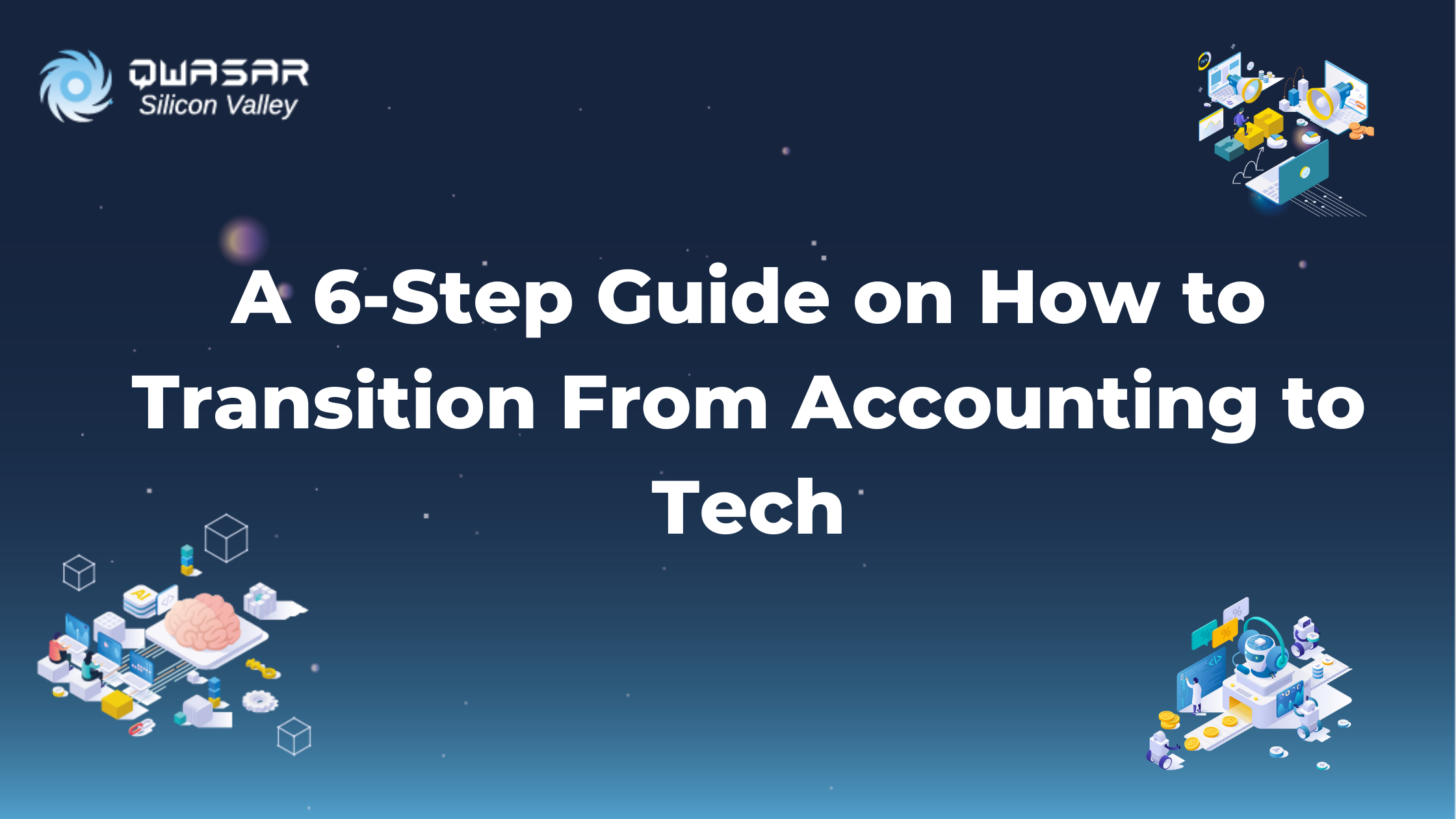Transition From Accounting To Tech
Fully remote, community-driven online technical training for accountants to get into the tech industry.
Join Qwasar to Transition from Accounting to Tech
Making the transition into tech from accounting can be difficult. Our programs are a great opportunity for those with a career in accounting to utilize their transferable skills and switch careers. We offer online technical training programs focused on learning software engineering, full stack development, and data science that are affordable, remote, and rooted in community. Our programs are affordable so that everyone can access elite technical training at Silicon Valley standards. Plus, we actually train you to the level that entry-level requirements that jobs ask for and prepare you for a technical interviews.
What to Expect in a Transition from Accounting to Tech
9 to 18-month remote training programs
Gain experience building and developing software. By the time students complete the program they will earn an industry-standard certification in Software Engineering, Full Stack Development, or Data Science from Qwasar.
No tests, only projects
Each focus of this program will involve completing projects in teams as well individually to ensure students are learning and applying their knowledge.
Build apps and software in groups and on your own
Complete end-to-end software projects that cover both front-end and back-end development. Build software applications and websites in common content management systems. Work in groups and complete individual portfolio projects.
15+ hours a week time commitment
Students will need to devote 15+ hours a week minimum in order to fully learn the content necessary to pass the course and become a software engineer.
Showcase advanced projects to recruiters
Students will showcase approximately five to 20 projects representing thousands of lines of code for employers and interviews.
Technical interview training and preparation
As part of this program, students will complete technical interviews to prepare for job applications. Students will be guided on how to navigate challenging technical interviews including whiteboard coding.
Write ~30-100K lines of code across 15-25 projects
On average, students will write about 100,000 lines of code as they complete exercises, software projects, and coding challenges throughout the program. This high-quantity coding means students develop confidence in their code and applied software architecture design and implementation experience.
Software Skills You Will Learn
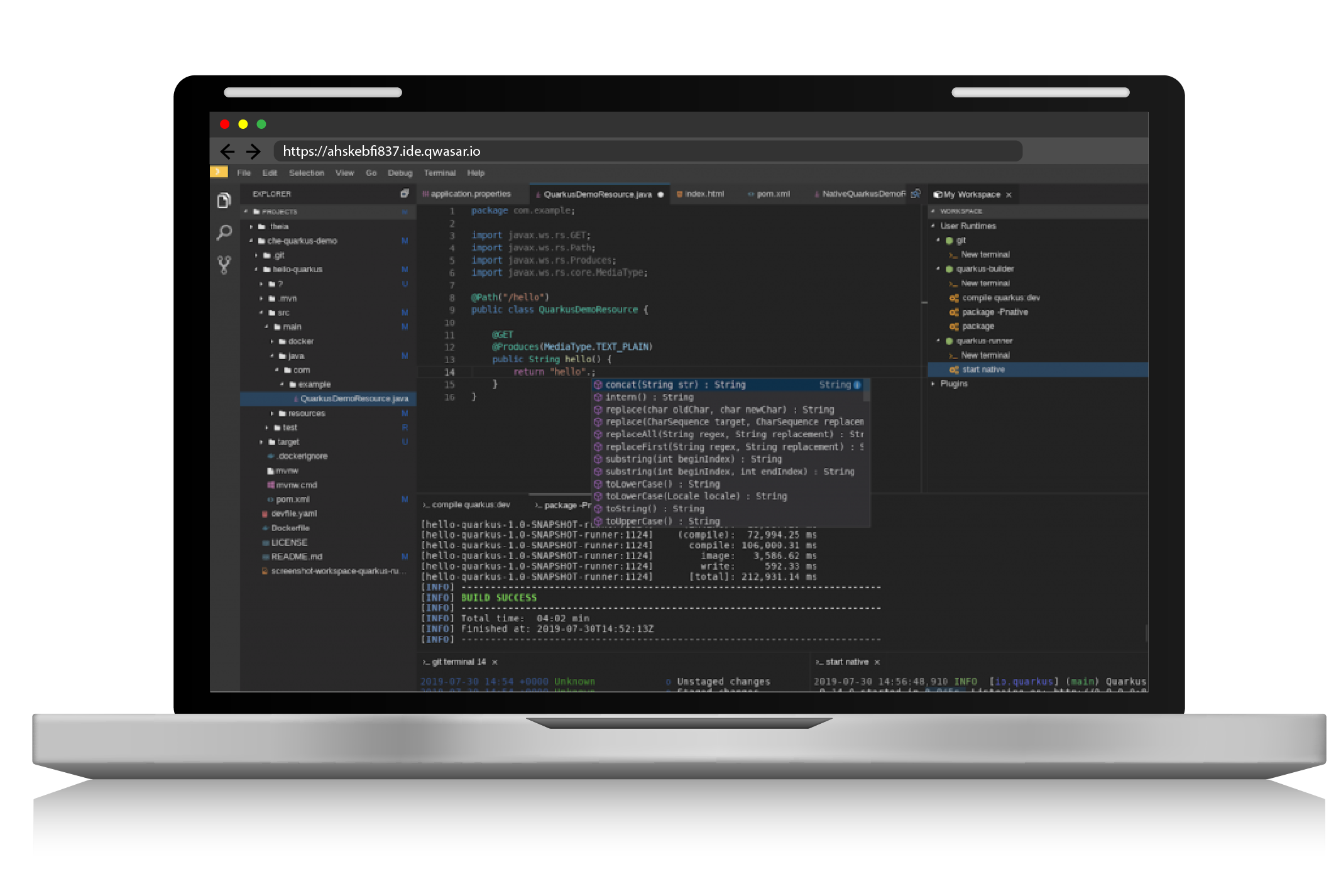
These three subject areas allow an accessible pathway for accountants to gain careers in the tech industry. Qwasar has established partnerships with employers who are committed to this program, having seen the success of these training programs for themselves.
Fundamentals
- Back-end programming
- Databases
- Algorithms
- Loop statements
- If statements
- Variables and Functions
- Git, IDEs, and terminal
- Software architecture
Technical Skills
- Pointers, arrays, and string algorithms
- Hash data structures
- Blockchain basics
- C/C++
- Shell Virtual Machines
- Sockets
- OOP (Object-oriented programming)
- Network programming
- AI
- Advanced data structures
- Javascript
Soft Skills
- Giving and receiving peer code reviews
- Structured problem solving and debugging
- Communication skills
- Collaboration and teamwork
- Resourcefulness
- Flexibility
- Ability to handle complexity and complex problems
- Creativity and innovation
- Critical thinking
Our Programs
Check out our programs for accountants to transition into tech through Qwasar with a certificate or master's degree program:
Certificate Programs
These programs are shorter and more flexible than our Master’s program. Our focus is training learners to Silicon Valley standards, and in developing a breadth and depth of technical skills that other programs don’t. We offer 5 specializations for our certificate programs:
- Software Engineering
- Full Stack Development
- AI/Machine Learning
- DevOps/Cloud
- Data Science
Master's of Science in Computer Science
A contemporary Master’s program that trains to Silicon Valley standards. We make sure our graduates are equipped with all of the skills and competencies necessary for success in the 21st century. Customize your degree and choose your specialization.
- Backend Software Engineering
- AI/Machine Learning Engineering
- Full Stack Development
Technical Training Program Costs
Professional Applied Courses in Engineering and Career Pathways
We offer one of the nation's most affordable training programs and coding courses, in addition to training you to a much higher technical level than other providers. Program payments are broken down into monthly payments over a period time. The total program cost is:
$249 - $1499
Attend an informational session for more information on our courses!
Master's of Science in Computer Science
We offer one of the nation's most affordable training programs and coding courses, in addition to training you to a much higher technical level than other providers. Program payments are broken down into monthly payments over a period time. The total program cost is:
$5,000
Schedule a one-on-one session to learn more about the program!
How an Accounting Background Can be an Asset When Switching into Software Engineering
A career in the accounting industry prepares you for a career in technology in many ways. There are important transferable skills that will make the transition easier. This expansion of current skill set enables more technical job opportunities to arise and ability to take new avenues within a professional career.
The accounting industry requires a high level of professionalism as well as extensive networking events. This translates well into technology through peer code reviews, team-oriented projects and collaborative coding exercises. Some of prominent skills utilized in both industries are logic, rigor, and attention to detail. Whether working in an Excel document or on an advanced database, these are important skills to hone. There are many moving parts in the technology industry, so having a base understanding and working knowledge of these skills sets you up for success.
;
A 6-Step Guide on How to Transition From Accounting to Tech
Check out our 6-step guide on how to transition from an accounting career into tech. Learn about the benefits of transferrable skills and how to make the switch to a digital career.
Transition into Technology: the Logistics of a Career Switch
Learn more information on what student and technology requirements are needed, tips on how to be successful and frequently asked questions.
How Can I Be Successful?
Learners who are most successful in transitioning from accounting to tech are the ones who spend a lot of time coding. This program requires about 15-20 hours per week of focused, uninterrupted work - time spent coding and completing projects and exercises.
Learners who cannot or do not commit or set aside 15-20 hours per week will not be successful in the program. The course load requires consistent time to work on software projects, and is different from traditional learning models with lectures followed by homework.
Learners who put in the time and effort are the ones who will get the most out of this course.
Requirements
Student Requirements
- Be fluent in conversational English
- Must be familiar with computer systems
- Must have a working computer, internet access, and basic calculator
- Familiarity with code is recommended.
- No previous coding experience is required.
Technical Requirements
- Computer with compatible web browser (Google, Chrome, Firefox, or Microsoft Edge)
- Stable Internet connection (video interaction is not available offline)
- Speakers/headphones, microphone, and web-camera to hear audio from a computer
(videos have subtitles as an alternative) - Lessons can be completed on any desktop computer, smart phone, or tablet
- No software download or purchase is required
- You do not need a “powerful” computer; a Chromebook will suffice
How Learning Works
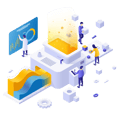
Projects
Each season has a series of projects to complete that last 1 day to up to 3 months. These are problems and challenges to build software based on certain requirements and restrictions.
One example of a project would be to build a task-management software with tags, permissions, and a basic user interface.
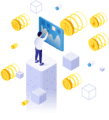
Exercises
Each week, participants will have 1-5 coding exercises to complete. These are accessed through our software and your code is auto-graded to ensure it is up to speed and functioning. This is part of the learning process. We have over 800 exercises in our library with thousands of test cases!
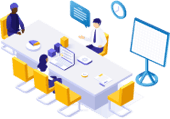
Role Plays
We use role play to develop soft skills such as job negotiations or conflict resolution. We also use role play in technical interview practice where participants will both be the interviewee and the interviewer. This dual-sided perspective is unique to our program & helps build better interviewees.
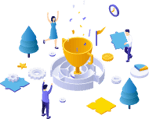
Gamification
Our system is gamified, meaning that you will earn and spend “Qpoints.” As you complete peer code reviews, you earn points and as you submit your projects for review, you will spend Qpoints.
How Our Curriculum Prepares You for the Switch
Our programs start out with a foundational level of technical skills through a preseason bootcamp. This sets the groundwork for all future seasons and projects of growing complexity. In this preseason, learners develop skills in basic software engineering principles, variables, functions, loop statements, if statements, basic algorithms, Javascript, IDE, Terminal and data structures. There are various projects completed in this season to develop competency before moving on. Each following season will utilize skills and work off of the concepts developed from prior seasons until mastery of all concepts is achieved.
The style of instruction incorporated into our training program is skills-based, project-based, and competency-based education. It is hands-on and active to engage learners in the entirety of the learning process. There are no lectures to sit through, which differs greatly from a traditional accounting degree curriculum. This enables all learners to understand and develop competency in technical subjects. It works well for the concepts in our curriculum as well as translates into on-the-job success amongst our learners. Our approach is backed by learning and behavioral science to develop skills for the 21st century.
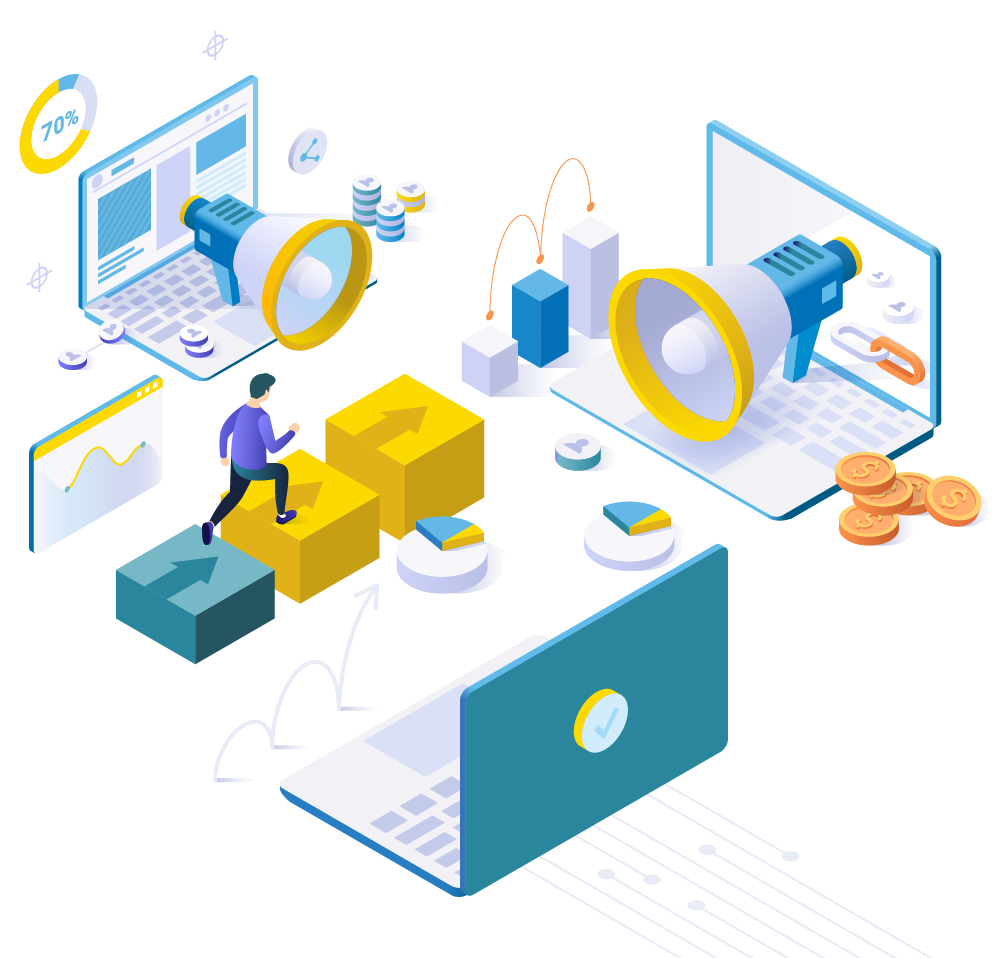
What To Expect
- You will do a lot of coding, there will be more projects and homework with less class hours
- You are going to be challenged
- You are going to be highly engaged
- You will use industry standard tools
- Your code will have to work, accuracy is essential
- You will keep pushing until you are successful
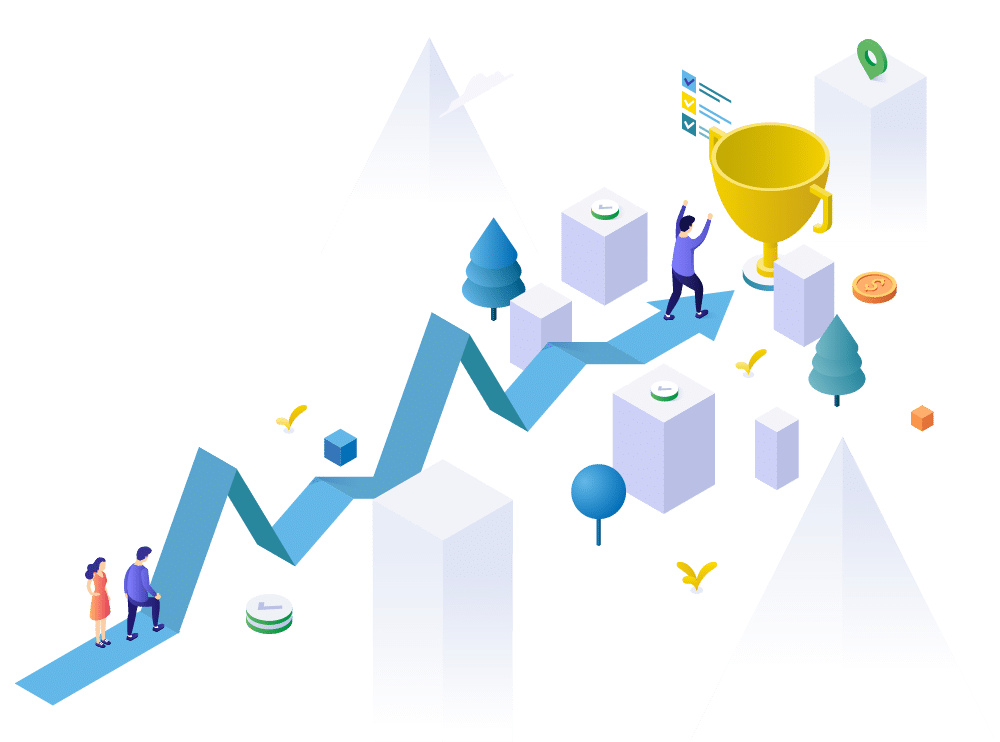

Transferrable Skills
1. Delivering Work at Client-acceptable Standards: Balancing the Books, Debugging Code
2. Critical Thinking and Problem Solving
3. Attention to Detail
4. Being Security-minded: Protecting Against Fraud in Accounting, Vulnerabilities in Software
5. Time Management
Sample Curriculum for Software Engineering
Our software engineering coding course is split into four tracks. You’ll cover the following:
Pre-Season
Basic software engineering principles, variables, functions, loop statements, if statements, basic algorithms and data structures.
Key technologies: Javascript, navigating the terminal, using an IDE
Season 1
Cover fundamental computer programming concepts and learn the basics of C. Build a solid foundation in back-end programming including pointers, arrays, strings, algorithms, linked lists, hash data structures, software architecture, blockchain basics and more.
Key technologies: C, software architecture, blockchain
Season 2 Software Engineering
Learners advance to more in-depth C programming such as Shell, then move on to cover intermediate data structures and algorithms. Learners build a database, cover LibASM before moving on to learn Ruby quickly and finally dive into memory allocation in C.
Key technologies: C, Shell, Assembly, Ruby, memory allocation and management, software architecture
Season 3 Software Engineering
Perhaps one of the most challenging tracks, learners dig into object-oriented programming (OOP), C++, Rust, network programming, sockets, FTP, real-world software projects, and move into advanced algorithms, AI, and advanced data structures.
Key technologies: C++, OOP and OOD, Rust, sockets, network programming
Season TIPP
Learners complete a final program project that aligns with the industry in which they want to get a job. The project must be about 3 months in duration and of significant technical difficulty. Learners will also contribute to open source projects.Sample Projects
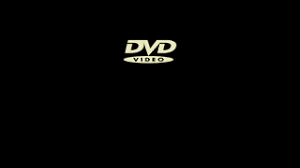
Vintage Microsoft Screensaver (Easy)
Building a a box that moves and bounces once it hits the edge of a screen, similar to Microsoft’s old screensaver!
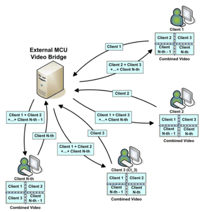
Skype Video Conferencing (Advanced)
As one of their final projects in the program, learners have to build a video conferencing system similar to Skype. This requires network programming, memory management, optimization, software architecture, and strong debugging skills. We include a simple architecture of what they have to build: a basic client-server diagram
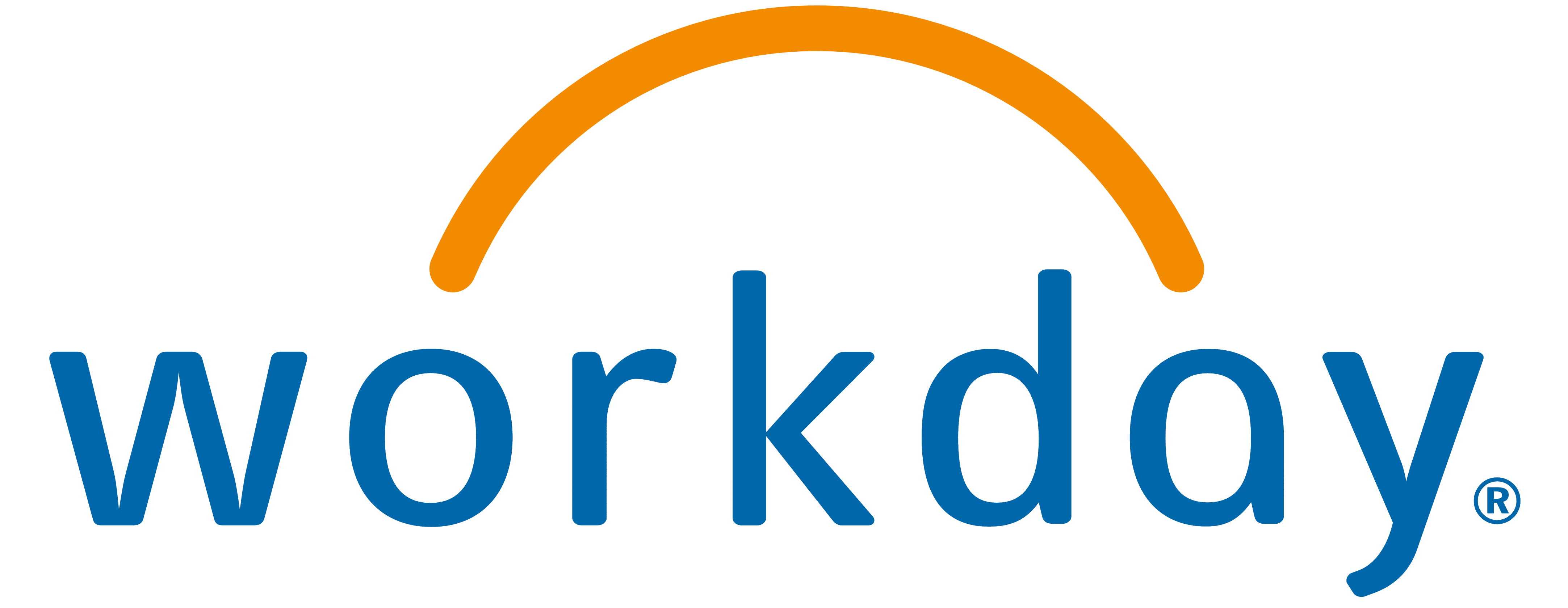
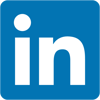
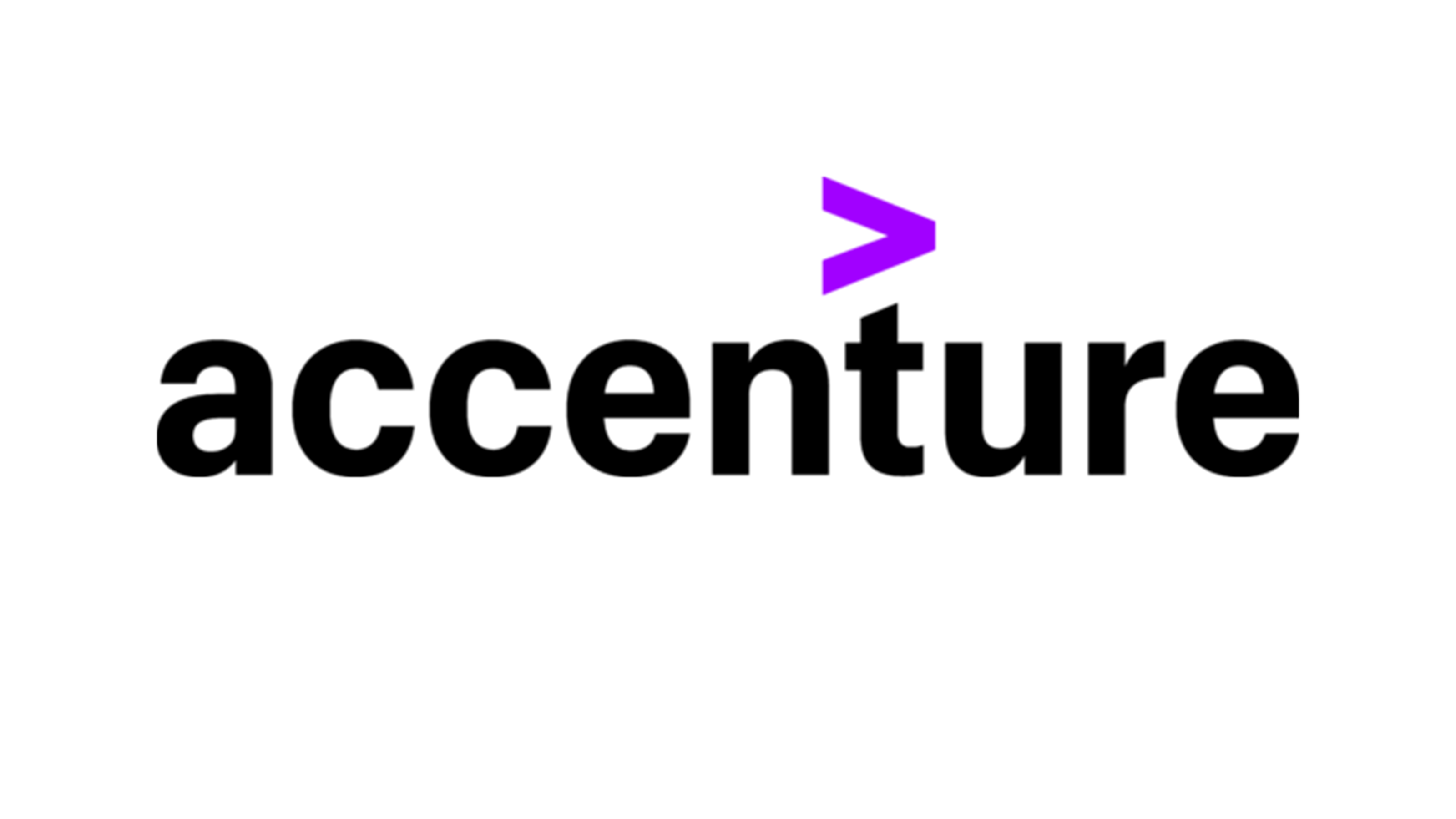
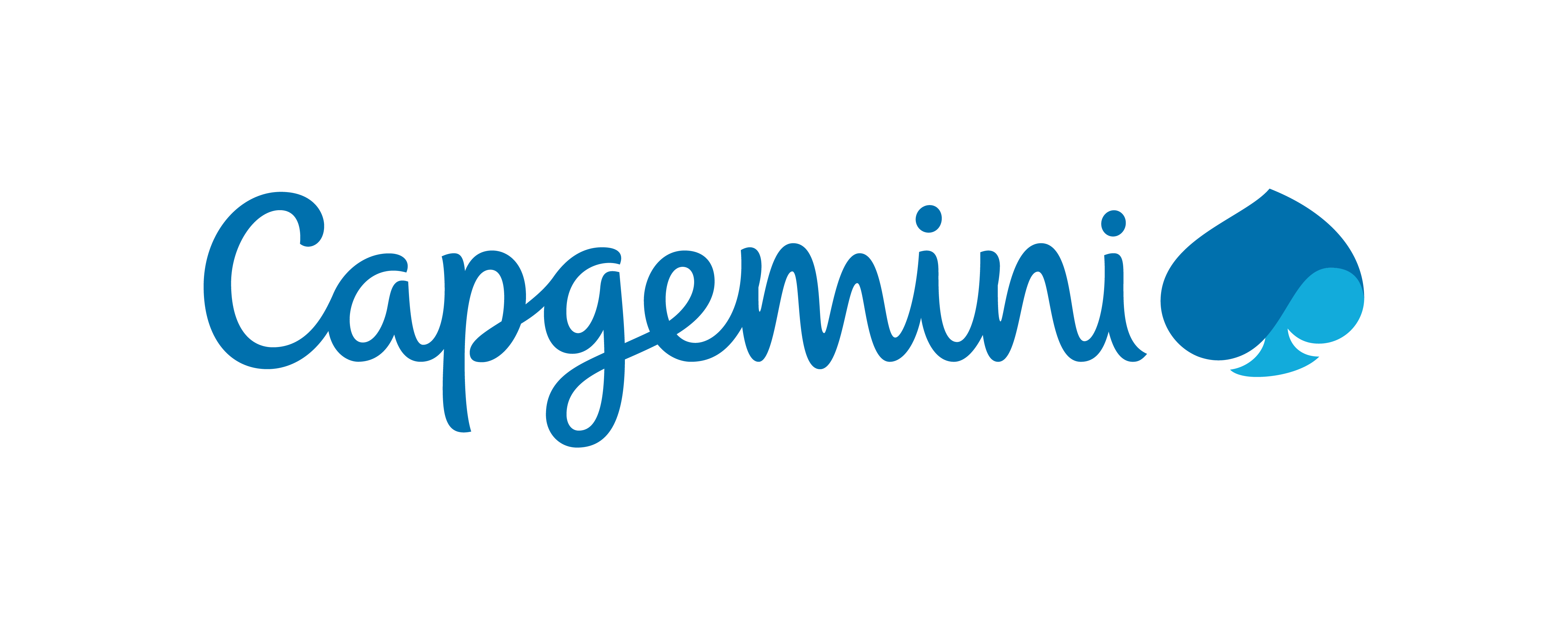
Employer Partners
Course Options Available
Self-Learning Upskill
Study at your own pace, in your own time, without any course meetings – just the assignments, projects, autocorrection, and peer reviews.
Requires 1 business day to register, process payment, submit verifications.
Max time to complete course: 6 months
Part-time Professional Flex
Study on a part-time basis with somewhat flexible options on course meetings. No project deadlines.
Start dates:
- 10 Sept 2024
Max time to complete course: 6 months
Intensive Bootcamp - Part Time
Study part-time in a highly structured intensive bootcamp. Attendance is required and projects have deadlines.
Start dates:
- 10 Sept 2024
Max time to complete course: 6 months
Intensive Bootcamp - Full Time
Study in a highly structured intensive bootcamp. Attendance is required and projects have deadlines.
Start dates:
- 10 Sept 2024
Max time to complete course: 3 months
FAQs
What is the time commitment for transitioning from accounting to tech?
For part-time programs, the commitment is roughly 20 hours per week. For full-time programs, expect about 40 hours of time dedicated to learning. Each of our programs also has a minimum commitment of 3 months when you sign up. You will be expected to attend virtual meetings each day including daily standups, live coding sessions, coding collaboration sessions, and tech start up of the week.
Is this program for veterans?
This is a great program for Veterans! Veterans are very familiar with a learning-by-doing or experiential learning model, as it’s what is widely used in the military. This active style of learning is what is used in this program. Previous Veterans who have participated in or completed this program enjoy the hands-on nature of the program, as well as the community aspect.
What if I work full-time? Can I still do this program?
Maybe. If you work full-time, you should enroll in one of our part-time programs. If you work Monday to Friday, we do not recommend enrolling in our weekday part-time program unless you are able to commit to all program meetings on a consistent and ongoing basis. Our Saturday part-time program is a great option for those who work full-time during the week.
We do not recommend enrolling in this program, working full time, and enrolling in additional classes. This program demands 15-30 hours of concentrated work time each week, meaning that with a full time job of 40 hours per week, you won’t have much time for other classes as well as normal life activities.
Do I have to buy textbooks or software?
No. All materials for this program and its courses are included in the tuition.
Are there any additional expenses for the program?
No - all materials for this program and its courses are included in the tuition. Three are no other additional expenses such as textbooks for this program.
When are the class meeting times?
This program hosts mandatory check-in meetings, live coding sessions, coding collaboration workshops, and Tech Startup of the Week presentations.
Morning Standup: 9:15 a.m. - 9:45 a.m. PST
Afternoon Standup: 4:00 p.m. PST
Live Coding Session: Tuesdays 11:45 a.m. PST
Coding Collaboration Session: Thursdays 9:45 a.m. PST
Tech Startup of the Week: Thursdays 4:00 p.m. PST
What is your attendance policy?
Attendance at program meetings is required and considered part of the program. Meetings are very much about learning from others, engaging in projects in group settings, and working with others. Learners who consistently miss meetings will be subject to academic interventions, up to expulsion from the program. Learners who need to pause their enrollment for unexpected life circumstances can do so by speaking with and working with their program manager.
What kind of computer do I need to do this program? What if I don't have a computer?
This program uses software that will work on a Chromebook. You do not need to purchase a powerful computer in order to complete this program. You will need stable internet access and a good connection, however, in order to participate and learn in this program.
Do I need previous coding experience?
No. This program is designed for learners who do not have any previous coding experience. If you have previous coding experience, it will likely help you go a bit faster on some of the projects and coursework.
How To Apply
Step 1: Submit your application online.
Step 2: We review your application.
Step 3: You will be invited to schedule a virtual interview.
Step 4: Following the interview, if accepted, you will be invited to enroll.
Step 5: You will receive an email with a link to the enrollment form.
Step 6: You complete the enrollment form.
Following a successful application and enrollment, you will be expected to attend orientation, virtually of course!
Questions?
We are here to help! Contact us for assistance or more questions about the transition from accounting to tech.

